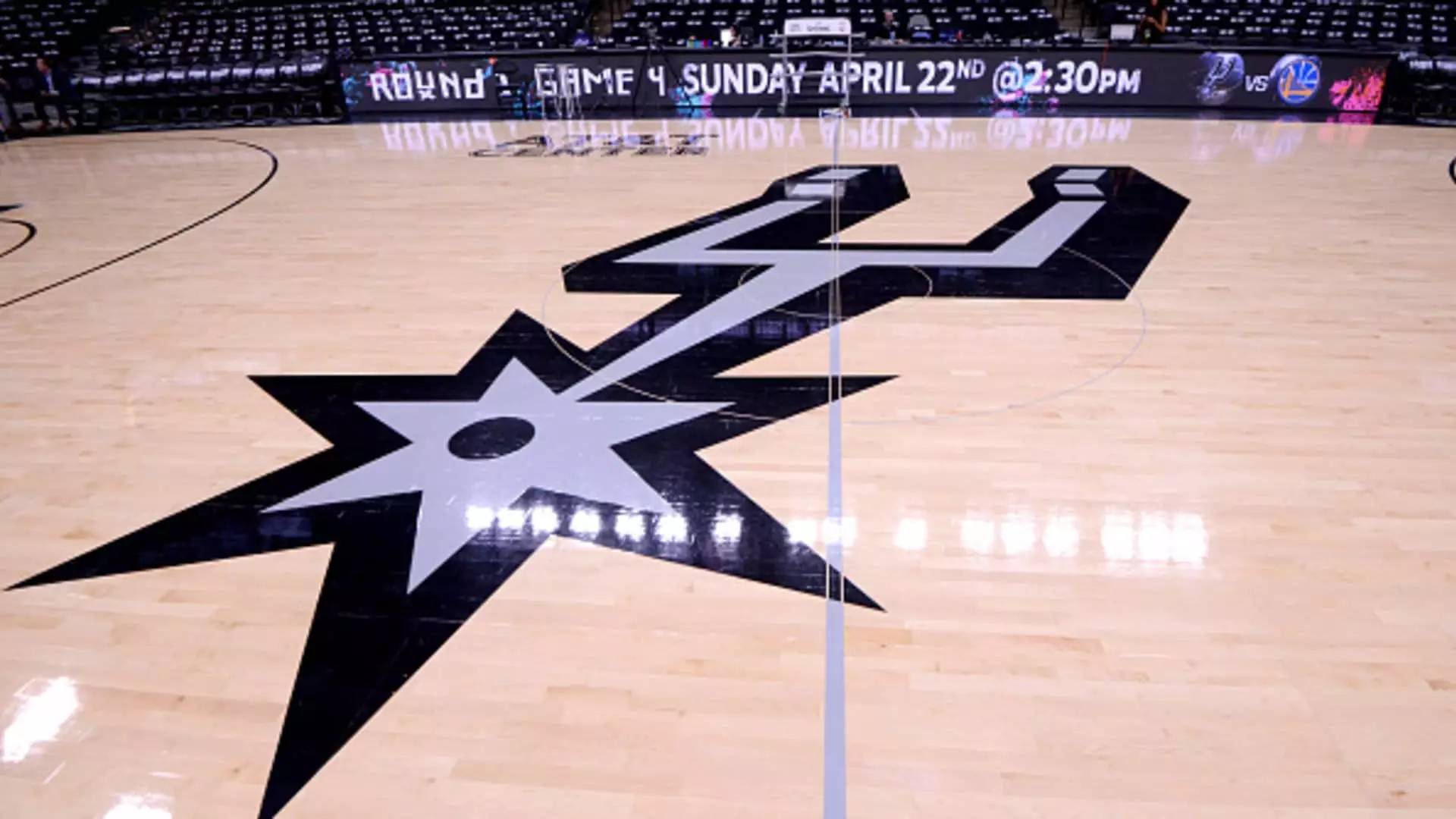In a noteworthy maneuver within the sports investment landscape, businessman Paul Viera has opted to bolster his ownership in the San Antonio Spurs from 5% to 11%. This strategic decision reflects a broader trend among investors as NBA franchises continue to gain value and allure as assets. With valuations skyrocketing, Viera’s acquisition reveals not only his faith in the franchise but also a pivotal moment in the financial landscape of professional basketball teams. Recent reports indicate that Viera, the founder and CEO of Earnest Partners, has executed a buyout of food service giant Aramark’s remaining stake in the Spurs at a significant discount, attributing a valuation of $2.5 billion to the team.
The NBA is experiencing an unprecedented surge in team valuations, fueled by a lucrative $76 billion media agreement spanning over 11 years. Viera’s engagement in this dynamic marketplace is emblematic of post-pandemic investor confidence. By increasing his stake in the Spurs, Viera gains a more influential position, albeit still a minority, in a franchise that has seen illustrious moments historically, triumphing five times in the championship. However, the Spurs have grappled with recent struggles; they have not made the playoffs since 2019 and recorded a dismal 22-60 in the recent season. The evolving narrative surrounding Victor Wembanyama, a standout rookie prospect, could significantly shift the team’s present and future financial health, marking an intriguing juxtaposition between historical success and transitional challenges.
Investing as a partial owner often comes with complications—specifically, the notion of controlling interest. Viera’s incremental acquisition is a common scenario wherein minority stakeholders can acquire shares at advantageous rates compared to acquiring larger chunks of ownership. This financial model allows investors to balance risk while still gaining a foothold in lucrative franchises. Understanding these dynamics reveals the strategic maneuvers essential in high-stakes environments like the NBA. Aramark’s recent divestment sheds light on these complexities, having reportedly sold its stake for $98.2 million, which, coupled with a pretax loss statement of $1.1 million, highlights the nuanced financial backdrop in professional sports investments.
At the helm of the Spurs is Peter Holt, who has been a staple in the team’s ownership since 1996. With a diverse group of minority stakeholders, including high-profile figures such as Michael Dell and legendary player David Robinson, the Spurs’ ownership model mirrors a growing trend in professional sports: diversification. The inclusion of a broader demographic is a significant focus for the NBA, which aims to reshape the ownership landscape by encouraging former players and people of color to invest in teams.
This trend plays a pivotal role in enhancing the sport’s representation and ensuring that the decision-making authority is reflective of a wide range of experiences. The substantial investments by figures like Viera and former NBA players demonstrate a shift toward nurturing a more inclusive and diverse ownership environment, thereby enriching the broader cultural fabric of actual basketball operations.
As the NBA’s narrative unfolds, the focus now shifts to the Boston Celtics, whose co-owner, Wyc Grousbeck, has revealed intentions to sell his stake. The anticipation of a significant valuation, estimated between $5.5 billion and $6 billion, juxtaposed with the vast contrasts in stakeholders’ acquisition strategies across different franchises, showcases the ever-evolving landscape of NBA team investments. From Grousbeck’s earlier purchase of the Celtics for $360 million in 2002 to the astronomical expectations surrounding its sale, the fluctuation in team valuations underscores that stakeholder value extends beyond mere financial figures; it encapsulates the very essence of community allegiance and pride.
Paul Viera’s enhanced stake in the Spurs exemplifies the interplay between tradition, ambition, and the financial imperatives that outline the future of professional basketball ownership. As teams continue their value ascent, investor relationships and strategic maneuvers remain at the forefront of this evolving narrative, paving the way for future opportunities in sports investment.

